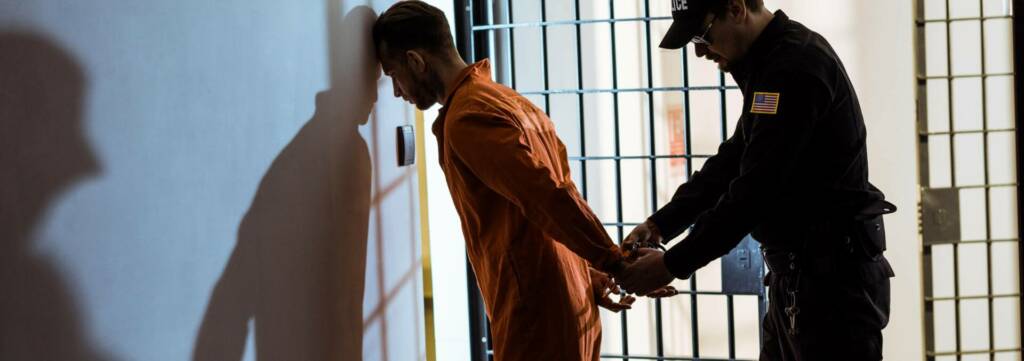Is it Possible to Fight a Drug Possession Charge?
If you have been arrested on a drug possession charge in Tennessee, the potential impacts of a conviction can feel frightening and overwhelming. However, there are several defense strategies that may be employed to challenge these serious allegations in court, which could result in a reduction or dismissal of your charges. A skilled can explain the legal requirements for a drug possession conviction and methods to dispute the charges.
What Constitutes Drug Possession in Tennessee?
Tennessee law categorizes controlled substances into different schedules based on their potential for abuse. Schedule I drugs, such as LSD and heroin, are considered the most dangerous and, therefore, carry the harshest penalties. Schedule II drugs, like cocaine and methamphetamine, also have severe consequences. While marijuana has been legalized in many U.S. states, it remains illegal in Tennessee for both medical and recreational use, and having it can result in charges.
To prove drug possession in Tennessee, prosecutors must demonstrate that the defendant knowingly possessed an illicit substance. The definition of possession is twofold: the defendant must be aware of the drug’s presence and also have control over it. Possession can take two forms:
- Actual: The drugs are physically present on the person or in their immediate belongings, such as clothing
- Constructive: The substance is within the person’s control, such as in a car or home
What Are the Potential Consequences of a Drug Possession Charge?
The penalties for drug possession in Tennessee vary depending on the amount and type of drug involved, as well as the defendant’s criminal history. However, even simple possession, which is typically charged as a misdemeanor, can result in a fine of up to $2,500 and up to 11 months and 29 days in jail for first-time offenders. Prior offenses or possession of larger quantities can lead to felony charges with more severe ramifications. A drug possession conviction could also lead to long-lasting challenges beyond the fulfillment of the sentence, including difficulties in obtaining employment, housing, and educational opportunities.
What Legal Strategies Can Be Used to Challenge a Drug Possession Charge?
Considering the potential risks of a conviction, it can be critical for defendants to challenge possession charges effectively. The burden of proof in these cases lies with the prosecution, who must prove beyond a reasonable doubt that the defendant knowingly had possession of the controlled substance in question. The defense can introduce doubt about these allegations through several different methods. The circumstances of each case are unique and must be considered carefully when crafting a defense. The following are some of the arguments most commonly utilized against drug possession charges.
Violation of Fourth Amendment Rights
Challenging the legality of the search and seizure that led to the discovery of drugs is a frequently used defense strategy. If law enforcement violated the defendant’s rights by conducting an illegal search without a valid warrant or probable cause, any evidence they obtained may be suppressed. For instance, if the drugs were found during a traffic stop, the attorney might argue that the stop itself was unlawful, potentially leading to the exclusion of all evidence obtained as a result. A lack of usable evidence can potentially lead to a dismissal of charges or significantly weaken the prosecution’s case.
Lack of Knowledge or Possession
As drug possession charges are based on having control over the contraband substance, they may be refuted by proving that the defendant was unaware of the drugs’ presence or did not have control over them. This defense can be particularly effective in cases where drugs were found in shared spaces like vehicles or residences. In these situations, it may be plausibly suggested that the drugs belonged to a roommate, family member, or someone else and had been brought into the space without the defendant’s knowledge.
Casting Doubt on the Prosecution’s Case
Defense attorneys often scrutinize the prosecution’s physical evidence and witness testimony, including:
- Questioning the reliability of field tests or laboratory analysis
- Challenging the chain of custody of the evidence
- Requesting that prosecutors produce the actual drugs during the trial
- Disputing the credibility of prosecution witnesses
- Calling expert witnesses to testify about relevant topics
- Highlighting inconsistencies in the evidence or testimony
If there are issues with evidence handling, contamination, or missing drugs, it could lead to reduced or dismissed charges. Witnesses or test results that appear unreliable can weaken the prosecution’s case and cause doubt in the jurors’ minds.
Entrapment
In some cases, defendants may argue that law enforcement induced or pressured them into committing a crime they wouldn’t have otherwise considered. To successfully use this defense, the attorney must demonstrate that a law enforcement officer or informant initiated the idea of purchasing or possessing drugs and persuaded or coerced the defendant into taking the illegal action.
Momentary Possession
It can be a valid defense to demonstrate that the defendant only possessed the drugs for a very brief period and had no intention of using or distributing them. For example, if someone found the drugs unexpectedly and was attempting to dispose of them when caught, this defense might apply.
Why Enlist the Assistance of a Knowledgeable Defense Attorney?
Tennessee’s drug laws are strict, and attempting to fight possession charges on your own can be risky. At Davis Law, our experienced drug crimes defense attorneys have in-depth knowledge of Tennessee drug laws and court procedures, allowing them to identify weaknesses in the prosecution’s case and develop effective defense strategies. They can thoroughly examine the evidence, interview witnesses, and investigate the circumstances surrounding your arrest to build a solid case.
While the consequences of a drug possession conviction can be severe, there are numerous ways to dispute these charges and potentially secure more favorable outcomes. Our attorneys can provide invaluable assistance in navigating the legal system while working towards the best possible resolution for the case. To schedule your free initial case evaluation and learn how we can put our skills to work for you, at 865-830-6286.





